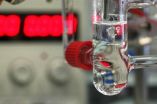(Press-News.org) Recording people belting out an old Motown tune and then asking them to listen to their own singing without the accompanying music seems like an unusually cruel form of punishment. But for a team of scientists at the University of California, San Francisco and University of California, Berkeley, this exact Karaoke experiment has revealed what part of the brain is essential for embarrassment.
The twist to the experiment was that most of the subjects had neurodegenerative diseases, which helped scientists identify a thumb-sized bit of tissue in the right hemisphere of the front part of the brain called the "pregenual anterior cingulate cortex" as integral to embarrassment.
The degree to which the singers were embarrassed in hearing themselves sing "My Girl" – the 1964 hit by the Temptations – depended on the integrity of this particular region.
"In healthy people, watching themselves sing elicits a considerable embarrassment reaction," said Virginia Sturm, a postdoctoral fellow at UCSF. Their blood pressure goes up, their heart rate increases, and their breathing changes, she explained. People who had neurological damage in the medial frontal cortex, however, responded more indifferently.
"This brain region predicted the behavior," said Sturm. "The smaller the region, the less embarrassed the people were."
Knowing that people lose their ability to be embarrassed and which part of the brain governs that ability may suggest ways to help diagnose people with certain neurodegenerative diseases earlier.
The work, presented today at the 63rd Annual Meeting of the American Academy of Neurology in Hawaii, is part of a larger body of work at UCSF's Memory and Aging Center examining emotion and social behavior in neurodegenerative diseases and searching for better ways to predict, prevent and treat them.
How Neurodegeneration Changes Behavior
Neurologists at UCSF and elsewhere in the country have documented for years how people with a group of related neurodegenerative conditions called frontotemporal dementia act in ways that would be embarrassing to healthy people. These conditions result from progressive degeneration of the temporal and frontal lobes of the brain, which play a significant role in decision-making, behavior, and understanding and expression of emotion and language – including complex emotions like embarrassment.
As these parts of the brain deteriorate, people lose their ability to interact with others and may behave strangely. A growing body of work at UCSF and other medical centers has linked the loss of certain brain structures and neuronal networks to specific behavioral changes.
In their Karaoke experiment, Sturm and her colleagues took 79 people – most with neurodegenerative diseases – and asked them to sing while probes measured their vital signs and cameras videotaped their expressions.
They sang. Their songs were recorded, and then they were played back at normal speed without the accompanying music. Sturm and her colleagues assessed how embarrassing this was for the participants based on facial expressions and physiological markers, such as sweating and heart rate.
Next, all the people sat for MRIs, which made extremely accurate maps of their brains. Sturm and her colleagues used these maps to measure the volumes of the different regions of the brain and considered whether the sizes of those regions could predict embarrassment.
They found that people who had significant neurodegeneration in the pregenual anterior cingulate cortex were less likely to be embarrassed. In fact, the more deterioration of tissue this part of the brain, the less embarrassed people were about their own singing.
The same group was also subjected to a simple "startle" test of emotional reactivity in which they sat quietly until a loud gunshot sound crashed through the room.
"They do jump, and they are afraid," said Sturm, "so it's not like they don't have any emotional reactions at all. But patients with loss in this brain region seem to lose these more complicated social emotions. Emotions like embarrassment are particularly vulnerable in neurodegenerative diseases that target the frontal lobes."
While changes in thinking and memory are easily identified by family members and clinicians, changes in emotion and social behavior can be more subtle and easily missed. A better understanding of the neural basis of social emotions like embarrassment may also help family members and caregivers better comprehend their loved ones' more severe behavioral changes.
INFORMATION:
The presentation, "Right Pregenual Anterior Cingulate Cortex Volume Predicts Self-Conscious Emotional Reactivity in Neurodegenerative Disease" by Virginia Sturm, Marc Sollberger, William Seeley, Katherine Rankin, Howard Rosen, Bruce Miller, and Robert Levenson is at 3:30 p.m. on Thursday, April 14, 2011.
UCSF team describes neurological basis for embarrassment
2011-04-15
ELSE PRESS RELEASES FROM THIS DATE:
A chance discovery may revolutionize hydrogen production
2011-04-15
Producing hydrogen in a sustainable way is a challenge and production cost is too high. A team led by EPFL Professor Xile Hu has discovered that a molybdenum based catalyst is produced at room temperature, inexpensive and efficient. The results of the research are published online in Chemical Science Thursday the 14th of April. An international patent based on this discovery has just been filled.
Existing in large quantities on Earth, water is composed of hydrogen and oxygen. It can be broken down by applying an electrical current; this is the process known as electrolysis. ...
Twitter and Facebook Marketing - Are African Businesses Cashing in on Free Advertising? With African Business Review
2011-04-15
There's no denying that social media, by many once considered a here-today-gone-tomorrow fad, is a key arrow in a marketer's quiver. It's word of mouth on steroids and free, right? Or not.
Social media experts in Kenya and South Africa warn companies not to view social media marketing, on platforms such as Facebook and Twitter, as free. Yes, these platforms are umpteen times more cost-effective that traditional advertising such as TV or print, but do need time, money and strategic thought to be effective.
"Although putting content onto Facebook using fan pages is ...
Illusion can halve the pain of osteoarthritis, scientists say
2011-04-15
A serendipitous discovery by academics at The University of Nottingham has shown that a simple illusion can significantly reduce — and in some cases even temporarily eradicate — arthritic pain in the hand.
By tricking the brain into believing that the painful part of the hand is being stretched or shrunk, the researchers were able to halve the pain felt by 85 per cent of sufferers they tested.
The research could point to new technologies of the future which could assist patients in improving mobility in their hand by reducing the amount of pain they experience while ...
Women more likely to self-medicate
2011-04-15
Approximately 20% of Spaniards take non-prescribed medication and women are the group most inclined towards this practice. This is the conclusion of a research study carried out by experts from the Rey Juan Carlos University in Madrid, which also links this habit to nationality, income level and alcohol and tobacco consumption amongst the population.
"In spite of the negative connotations generally associated with the idea of self-medication, it is actually the most significant method of self-care for the population", explains Pilar Carrasco, main author of the study ...
Manufacturing Digital Predicts the Future of Gaming Starts with the Xbox Kinect
2011-04-15
Motion sensor technology is taking the gaming world by storm. Although it took a long time to reach the shelves, the Xbox Kinect has fully lived up to its hype and expectation after reaching sales figures of 10 million in March 2011 and soon became the fastest selling consumer electronics device of all time, for which it holds a Guinness World Record.
Although the Nintendo Wii still remains the market leader, it seems like the Kinect will soon overtake this industry stalwart in the popularity stakes, with the PlayStation Move hot on its competitor's heels.
Positioned ...
Filtering out pesticides with E. coli
2011-04-15
Genetically modified bacteria could be used in air filters to extract pesticide vapors from polluted air thanks to work by researchers in China published this month in the International Journal of Environment and Pollution.
The bacteria Escherichia coli is perhaps best known as a bacterium that can cause food poisoning and in one form, the O157:H7, can damage the kidneys and even be lethal. However, E coli, is commonly used in biological research as a model organism for a wide range of beneficial experiments. Now, researchers in China have discovered that a genetically ...
CSHL team perfects non-lethal way of switching off essential genes in mice
2011-04-15
Cold Spring Harbor, N.Y. -- One way of discovering a gene's function is to switch it off and observe how the loss of its activity affects an organism. If a gene is essential for survival, however, then switching it off permanently will kill the organism before the gene's function can be determined. Researchers at Cold Spring Harbor Laboratory (CSHL) have overcome this problem by using RNA interference (RNAi) technology to temporarily turn off any essential gene in adult mice and then turn it back on before the change kills the animals.
In a study published online on April ...
inABLE- A Charity for the Blind in Africa- Seeks Supporters to Win April GlobalGiving Open Challenge
2011-04-15
Atlanta-based inABLE races to earn a permanent spot on the GlobalGiving website by mobilizing at least 50 unique donors before the end of April to raise $4,000. Help inABLE win this challenge at http://www.globalgiving.org/projects/computer-labs-for-the-blind.
inABLE shares hope and opportunity by bringing life changing, computer-based educational tools to Africa's blind and visually impaired students. The seed of inspiration behind inABLE was planted in 2008 when Atlanta resident Irene Mbari-Kirika traveled back to her native country Kenya and encountered an engaging ...
LOFAR takes the pulse of the radio sky
2011-04-15
In the first scientific results from the new European telescope LOFAR (Low Frequency Array) to appear in a journal – Astronomy & Astrophysics – the scientists present the most sensitive, low-frequency observations of pulsars ever made.
The International LOFAR Telescope is the first in a new generation of massive radio telescopes, designed to study the sky at the lowest radio frequencies accessible from the surface of the Earth with unprecedented resolution. Deep observations of pulsars is one of its key science goals.
Dr Benjamin Stappers, from the School of Physics ...
Badbeat.com Races to UKIPT Newcastle Main Event with Isle of Man TT
2011-04-15
Badbeat.com, the original and leading online poker staking business, is running a TT Race promotion throughout the lead up to the Isle of Man TT in May, offering its sponsored players Main Event tickets to the UKIPT Newcastle worth GBP500.
From 9am May 1st to 9am June 1st, any qualifying Badbeat sponsored player who wins a hand holding TT (a pair of tens) will have a chance to win a UKIPT Newcastle Main Event ticket. Badbeat will award one prize for every ten players who qualify.
"We're always looking for innovative ways to reward our sponsored players and they ...







